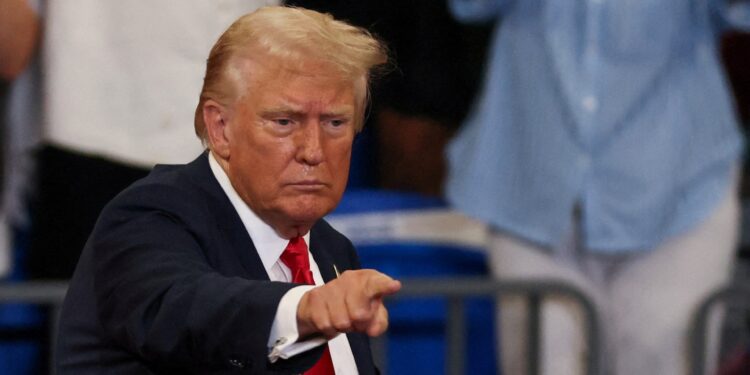18/8/2024–|Last update: 8/18/202402:30 PM (Makkah Time)
In a more polarized political climate than ever in the United States, large companies sometimes find themselves in the line of fire for supporting a candidate, becoming targets of boycott calls in the midst of the presidential election campaign.
This is evident in the recent ordeal faced by Netflix and Google, which were subjected to campaigns accusing them of funding the campaign of Democratic candidate Kamala Harris, months before the election on November 5.
In an extension of these accusations, calls for a boycott have increased, especially on (X), owned by billionaire Elon Musk, who had announced his support for Republican candidate Donald Trump and does not hesitate to try to influence voters through his platform.
However, these calls against Netflix have also spread across other social platforms, including TikTok and Instagram, where the same accusations have emerged that the companies are funding Harris’s election campaign to the tune of $7 million.
But Netflix clarified that its co-founder and CEO, Reed Hastings, made the donation “in his personal capacity,” stressing that his position “has nothing to do with Netflix.”
Despite this, calls to “delete Netflix” have spread on social media, and footage showing people canceling their subscriptions has become commonplace.
According to Cyabra, a research firm specializing in counter-disinformation, about a quarter of the calls for boycotts on X come from fake accounts that were used to support Trump.
“Disinformation campaigns against companies in the current climate have an impact that goes far beyond simple image issues,” says Dan Brahmi, CEO of Seabra.
He stresses that “the Netflix case shows how quickly these campaigns can spread and reach hundreds of millions of people… but also that misinformation can manipulate public opinion and consumer behavior.”
delicate balance
“Companies need to be vigilant,” Brahmi stresses.
Like Netflix, Google has been the target of criticism and accusations of censoring certain election-related content, as well as other accusations of manipulating its search engine algorithm to highlight pro-Harris content.
In this context, hundreds of accounts emerged on the X platform calling for a boycott of the digital giant, after they had previously been used to support Trump as well.
Elon Musk, a regular critic of Google, has played a “significant role in amplifying negative content” against the company, according to a report by Siapra.
However, boycotting companies for political reasons is nothing new. According to a survey conducted by Sitejabber in early August, 30% of people have boycotted companies in the past 12 months, while 41% of those surveyed said they would prefer companies not to express a political stance.
“Companies need to strike a delicate balance during this election year,” Sightgaber CEO Michael Lai told AFP. “If appearing politically neutral seems less risky, it’s important for companies to understand that even neutrality can be seen as a position.”
chaos
However, consumers do not have a clear opinion on whether companies should take a stand on a particular political issue, according to an investigation by Certus Insight.
However, fears of negative impact on the brand prompted some companies to stop declaring through the X platform, especially after Elon Musk purchased the platform at the end of 2022 and almost completely abandoned any content moderation policy.
In early August, X filed a complaint against several companies, accusing them of boycotting the social network and causing it to lose billions of dollars in revenue.
“Misinformation feeds chaos and distrust,” says Claire Etkin, managing director of misinformation monitor Check My Ads. “Brands generally benefit from a well-informed community.”



